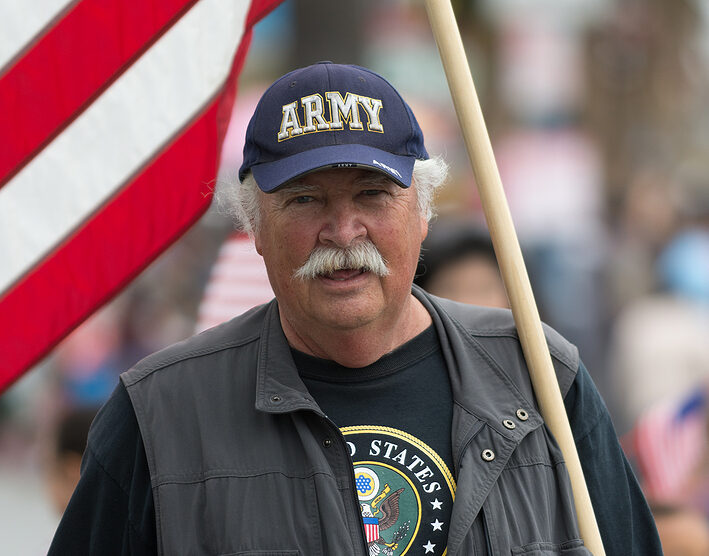Ask Vincent Morales, who served in both Afghanistan and Iraq, if America supports its veterans, and he’ll tell you, “Everybody loves a warrior when the enemy is at the gate.”
But what about when that warrior comes home and needs healthcare, or housing, or help navigating the VA system?
The good news for America’s 18 million veterans is that there have never been more organizations providing more services to the men and women who’ve worn the uniform.
The bad news, according to leaders of veterans charity groups across the U.S., is that the need has never been greater.
Morales is a co-founder of the Veterans Community Project, which provides housing for homeless veterans, many of whom are struggling with PTSD and other issues. He shared his story at a recent Washington, D.C., roundtable of veterans community charity organizations hosted by InsideSources.
“There’s a lot of goodwill across this country to support the military and veteran populations,” said Steve Schwab with the Elizabeth Dole Foundation.
At the same time, he noted, “veterans service members, their caregivers, and their kids are among the most economically and medically vulnerable populations in the country.” As a result, the government shutdown has hit veterans particularly hard.
“In the last three weeks, we have seen a 500 percent increase in financial need from our community in the context of the shutdown and economic complexities that are occurring across families,” Schwab said. “So my team is in hyperdrive. We’re investing financially in families who are living on the edge.”
And that, said Lisa Rechsteiner with Philip Morris International’s U.S. businesses, is unacceptable.
“PMI U.S. feels that we have a moral duty to support those who have raised their hands to serve, and to the families who support them, “ Rechsteiner told the roundtable, sponsored by her organization.
The range of need is wide. Nick Cannon with Florida-based Wounded Veterans Relief Fund told how, in 2021, a veteran came to its Palm Beach office needing dental care.
“We looked into it, and we found 85 percent of veterans do not qualify for VA dental care,” Cannon told his colleagues. “We said, ‘Wow, maybe we can do something about this. Year to date, we have provided more than 1,000 veterans with dental services.”
Cannon also tied helping with basics like dentistry, car insurance, and food aid to the fight against the high suicide rate among veterans. Those seemingly small struggles can leave veterans feeling isolated and unimportant.
One reason some veterans may feel that way is the gap between expectations and reality when it comes to accessing services, suggested Kristine Huskey, Director of Veterans Advocacy Law Clinic in Tucson, Ariz.
“People think that when you come out of the service, everyone gets to go to the VA, and all these service members have all the same things they had in the military. And that’s not true at all,” Huskey said. They have to navigate the benefits system which, for some veterans, is challenging.
“They don’t know how to help themselves with housing and or employment, if they lose their jobs or just need transportation.” That’s where legal clinics like hers play an important role.
And once again, the good news is the willingness of Americans to help.
“I’m proud to say that at my law school, there are more than 14 in-house clinics, and our veterans clinic is one of the most heavily subscribed by students,” Huskey said. “It’s mostly civilian students, too, who just want to give back. They want to help the veterans who have done so much.”
Cannon, an Air Force veteran, expressed his frustration that the current economy is forcing more veterans to turn to organizations like his. At the same time, he said, watching so many Americans from different backgrounds step up to serve them is inspiring.
“I’m honored. I’m proud, I get goosebumps talking about it. We’re doing this together, and that’s the most important part.”

